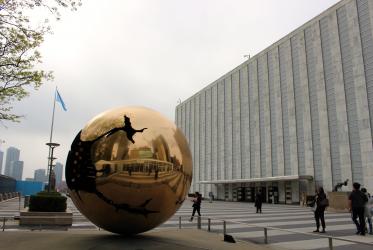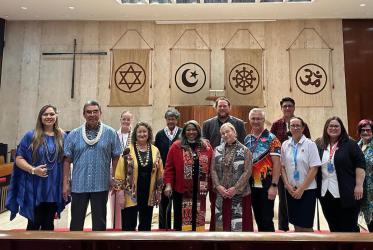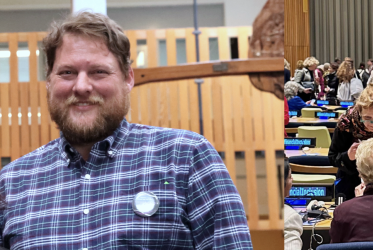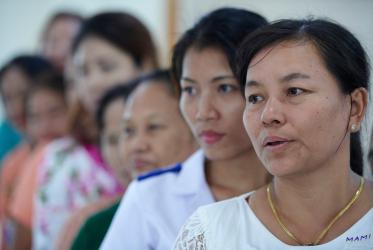“The ecumenical movement is the continuing interrogation of the knowledge of God’s people in the very localities where they live, and I think it would be sad if the ecumenical movement did not connect with the local communities,” says Bautista.
Bautista, who is from the Philippines and currently based in New York, was a voting delegate at the WCC 6th Assembly in Vancouver, Canada, 1983, previously on the staff of the National Council of Churches in the Philippines, and served on the general committee of the Christian Conference of Asia.
He adds that the ecumenical movement is simultaneously local and global.
“Budgets are moral documents. The World Council of Churches and the wider ecumenical movement will be known by where it invests its moral and financial resources—and it has to be for the betterment of God’s people in their communities,” he says.
Bautista speaks of how the legacy of the ecumenical movement is one of movements toward justice, including contributions to gender justice, food justice, and water justice.
He also urges that the wider household of God not be abandoned by the WCC.
“Placing the ecumenical movement, placing the World Council of Churches, placing the member churches of the ecumenical movement in the larger configuration of social movements is important,” he says. “We should not cede the multilateral conversation to nation states.”







